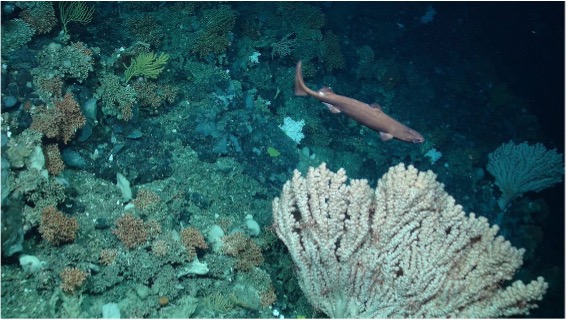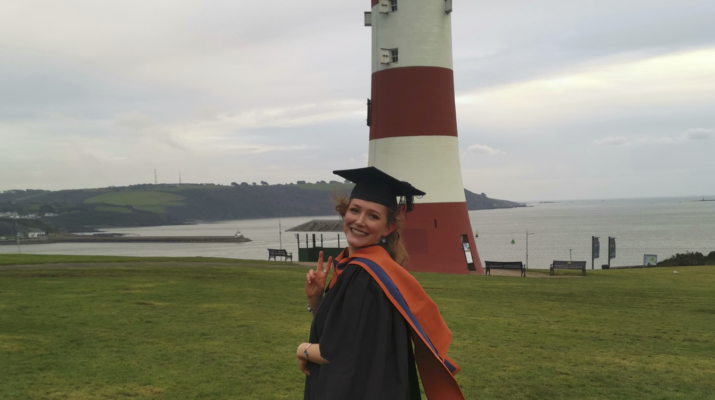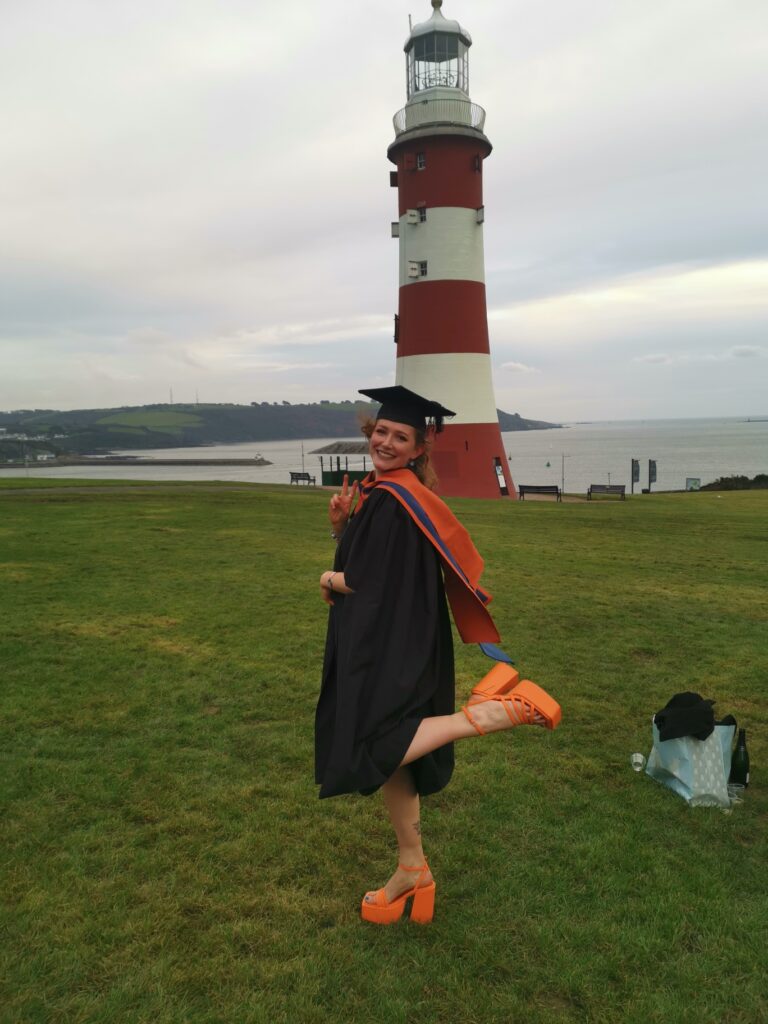Lucy Goodwin, PhD Candidate
University of Liverpool, England – Funded by the ACCE NERC DTP
Twitter and Instagram: @deepsealucy
Contact: lucy.goodwin [ a.t ] liverpool.ac.uk
What has been your personal journey into the deep-sea? (Did you always know this is what you wanted to do, or start out on a completely different path?) In other words, what unique journey led you to where you are now?
Similar to many others, my passion for the ocean started when I was very young – for me, it was all about dolphins. I decided I wanted to be a marine biologist because it meant I could swim with them in the wild, and eventually started a Bachelor’s degree in Marine Biology. Having toyed back and forth between dolphins and coral reefs before starting my degree, I soon pushed them aside when I realised how much the ocean had to offer. I became fascinated by the deep sea, the diversity of organisms there, and the adaptations necessary to survive. I decided to focus any project I could during my undergraduate degree on deep-sea biology and ecology; which included an internship in deep-sea sponge taxonomy and my dissertation on adaptations of mesopelagic cephalopods. During my Master’s degree, I decided I didn’t want to focus on one specific organism, but instead on deep-sea communities and their responses to variations in the deep-sea environment – and particularly wondered how I could work to protect them from prevailing anthropogenic impacts. This led me to where I am now as a PhD student researching the impacts of climate change on abyssal food webs.

What is your current research question and why are you interested in this topic?
I am currently in the first year of my PhD at the University of Liverpool, where I am studying the impacts of climate change on deep-sea communities and how resilient they are to the resultant environmental variations. I will be using stable isotope analyses to determine how the size-structuring of abyssal food webs have changed in response to climate-induced food flux. This topic is extremely interesting to me as it looks at how deep-sea communities vary through time, both physiologically and ecologically and I can use it to advocate for the protection of deep-sea communities. Additionally, it may provide a pathway for more simple food web monitoring in the future.

What have been some challenges in your work or in studying the deep sea in general? Has your research turned out how you expected?
My undergraduate degree and the research project I conducted as a part of it were hugely impacted by the COVID-19 pandemic, so I had to learn how to translate a physical project into something computer based. I learnt to be flexible with my research and find alternate paths to answer my questions. This resulted in my research not turning out how I expected, but instead looking at things from a different and unexpected, but equally exciting, angle. I’m expecting to face more challenges and twists in my research as my PhD progresses.
Why is this work important to you and society as a whole?
This topic is extremely important as, when people consider climate change, they often don’t realise that the impacts stretch as far as thousands of meters below sea level. In the public eye, the deep-sea is an alien community that is so far out of reach, but in reality it is just on our doorstep, and our everyday actions impact life there too. I hope that my research can be used to highlight the reach of climate change and emphasise to governing bodies the need to do more to reduce these effects.
Because we are such an international organization, can you describe what the deep-sea science community is like in your region?
As I am still very early in my career, my experience with the deep-sea science community in my region is minimal, but my past interactions have been a warm and friendly group of scientists all working together towards a larger goal, with many people willing to step up to enhance each other’s research. It also appears to be a much smaller world to be in that you might think!
What is your current position (student, researcher, government, non-profit etc) and what do you like about your current role in deep-sea science?
I am currently a PhD student, and currently I am really enjoying being able to develop my own research project based on my own expertise and dive into the deep end (if you can excuse the awful pun) of lab work, reading, and research cruises.

What advice could you offer to aspiring deep-sea biologists?
I advise aspiring deep-sea biologists to be enthusiastic and excited about whatever you find interesting. Look for opportunities to get involved with what interests you and never feel like you lack the qualifications to apply yourself. The best thing you can do is try not to let fear of failure hold you back and instead try for any opportunity you desire, because you could end up surprising yourself.
What is the biggest challenge or project you look forward to addressing in the future?
I’m really looking forward to going on my first ever research cruise this year to collect samples for my PhD project. Additionally, I’m really looking forward to developing my skills throughout my PhD and attending conferences to learn more about other deep-sea research areas and get to meet more members of the deep-sea science community.
What is your favorite thing about the deep sea?
My favourite thing about the deep-sea is that fact that, physically, we can’t get anywhere near it. While this makes things difficult and expensive research-wise, it makes me want to be involved all that much more. Additionally, I love the ridiculous adaptations of deep-sea animals that makes them look so strange but so beautiful.



Lucy Goodwin, a promising talent from Liverpool, represents the future of deep-sea research. Exciting to see young scientists pushing boundaries!